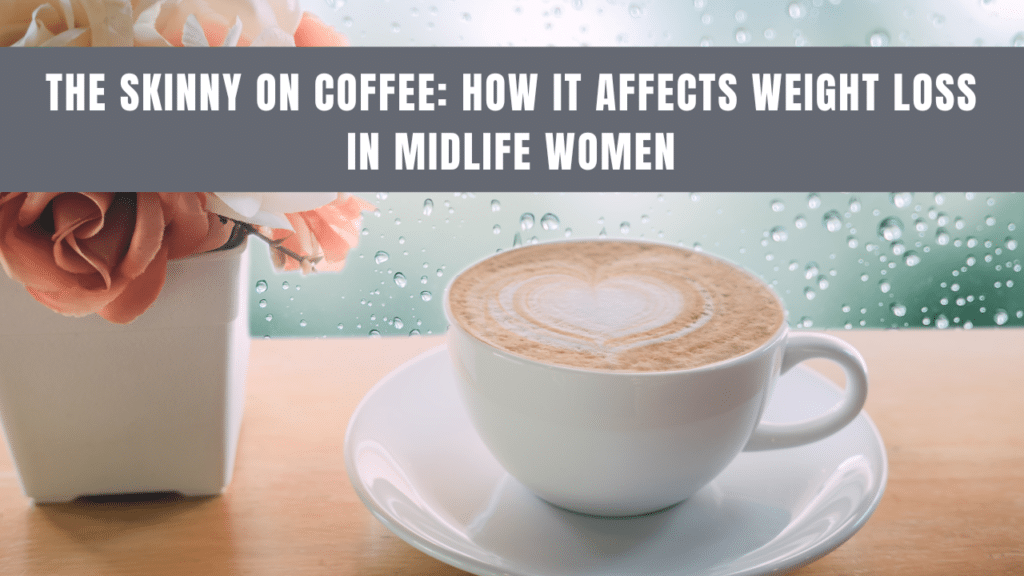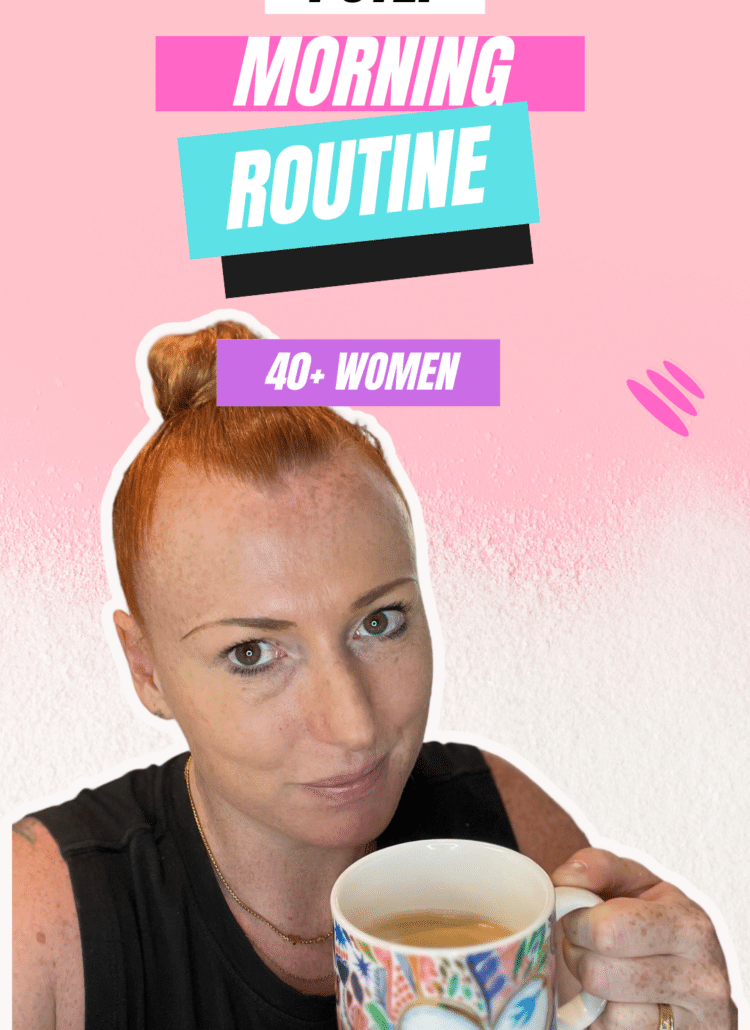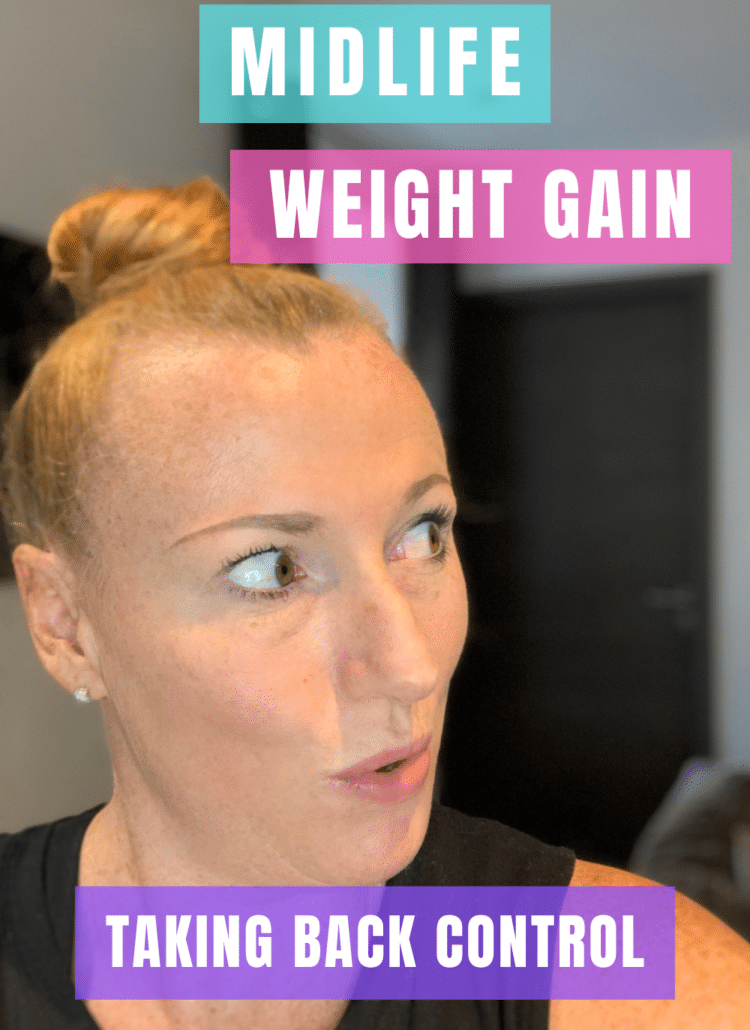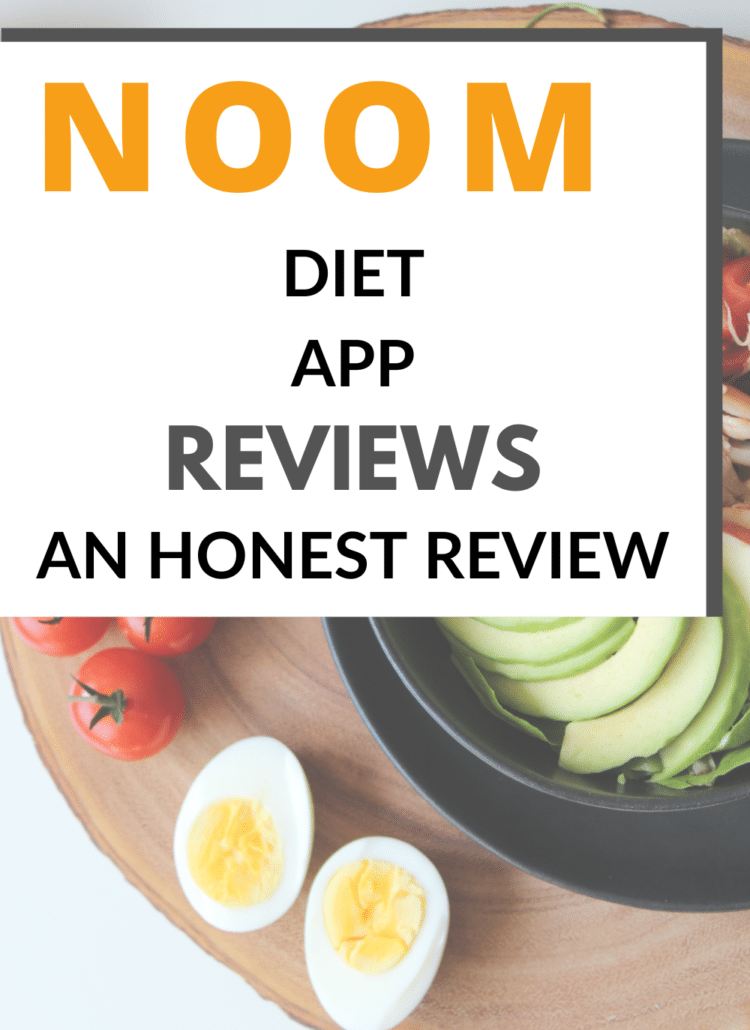What Every Midlife Woman Should Know

So many women that I get to talk to say a morning cup of coffee is an essential and blissful part of their morning routine. They count on their daily shot of caffeine first thing and throughout the day to function as they feel that almost instant energy boost.
Not only does coffee provide joy and an invigorating pick-me-up for many people, but it has also been linked to various health benefits, including potential fat loss.
Whilst there are many benefits to consuming coffee, it also has some downfalls. But always, the danger is in the dose.
When it comes to peri- and menopausal women, the impact of coffee consumption requires careful consideration as the effects of caffeine can be detrimental.
So how much caffeine is ideal to reap the health benefits and improve fat loss?? And how much is too much??
How Much Coffee Is Ok?
I have never been a regular coffee drinker myself, I just never really liked the stuff. Up until more recently that is, when all of a sudden I started to acquire the taste, or rather started to enjoy the digestive surge and the boost in energy and focus. I’m not sure I will ever really like the taste, plus it gives you the death breath that reminds me of my high school geography teacher, blurgh!
I still love my Matcha Green tea first thing, but I have started having the odd cup if I haven’t had my morning constitution (as my mother used to call it, but in other words to get my bowels moving first thing) or to help with focused work, or even as a pre-workout.
I don’t want to become a regular drinker because I like the fact that I am still quite sensitive to it, so if I only have it now and then, I can really feel the difference.
Like with anything, if you have it too often you become de-sensitised to its effects and it’s a slippery slope to feeling like you need to constantly refuel with the stuff.
The benefits of coffee are also limited to how you take it. Espresso or a plain black, then yes there are some studies that show benefits to health, reduced risk of some diseases https://www.telegraph.co.uk/health-fitness/nutrition/diet/beware-the-two-coffee-tipping-point/ improved cognitive function and weight loss.
But if you are having full-fat milk with a couple of sugars added to each cup, several times a day…then this could be one habit that could be holding you back from how good you could be feeling in your body as well as increasing the possible negative side effects of too much caffeine each day.
Here I will delve into the benefits of coffee for fat loss, while also shedding light on the potential downsides of excessive coffee consumption during this crucial stage of a woman’s life to help you decide if it’s going to be the right aid to support your health journey.
The NHS recommends that the safe limit of caffeine is around 400mg per day and 200mg for pregnant women. It’s when you get over 600mg per day that the science starts to show adverse effects such as insomnia, anxiety and increased blood pressure.
The caffeine content will differ from drink to drink but here is a breakdown mg of caffeine content for popular drinks though it will vary from brand to brand:
- Standard cup of black tea – 26mg
- Matcha Green Tea – 68mg
- Green Tea – 35mg
- Filtered coffee – 95mg
- Expresso Shot – 63mg
- Instant coffee – 30-90mg depending on brand
When it comes to your favourite coffee shop, the amount of caffeine in your cup can also vary massively and as Which, a UK consumer service, found that Costa offers up to five times as much (325mg for a 362ml cup) caffeine compared to the same cappuccino from Starbucks (66mg for a 350ml cup).
The question of whether coffee is good or bad for you really comes down to how fast or slow you metabolise it and how you personally respond to it.
In my very in-depth research and completely non-scientific study, also known as putting a question out to my followers on my Facebook page. It’s clear to see that some people can handle it much better than others. I know I personally can’t have it after mid-day if I don’t want to be staring at the ceiling when I go to bed.
Whereas one lady told me that she can have a cup at 10pm and still sleep soundly at night.

If you are like me, you may well be a slow metaboliser and may have to limit your intake, especially in the later part of the day.
If you are a fast metaboliser you may well be able to handle more. Just be mindful of how it affects your sleep as rest and recovery is a key issue for the midlife woman.
So if you are a regular drinker it may be worth checking in and just seeing where your daily consumption stands at.
Let me know in the comments, how many cups of tea or coffee do you usually drink?
Coffee For Fat Loss
1. Boosts Metabolism: Several studies have suggested that coffee can increase metabolic rate and enhance fat oxidation. Caffeine being the main active compound in coffee, stimulates the central nervous system, leading to an increase in metabolic activity. A study published in the American Journal of Clinical Nutrition found that caffeine significantly increased thermogenesis (the body’s heat production) and fat oxidation in both lean and obese individuals.
A more recent study also found that 1000 milligrams of caffeine can increase a persons energy expenditure by up to 100 calories a day. And another study showed that 4 cups of coffee a day was associated with fat loss in overweight participants
2. Appetite Suppressant: Coffee has been shown to have appetite-suppressing effects, which can help control calorie intake and contribute to weight management. A study published in the International Journal of Obesity demonstrated that caffeine consumption led to a reduced desire to eat and increased satiety.
As someone who is new to drinking coffee, this is one side effect that I have become very aware of. So if I find I am starting to get hungrier mid-morning or before lunch, then a coffee can be a tool to help you get through to lunchtime and stave away the consistent snacking thus helping you to limit the number of calories that you eat. If it’s your goal to lose weight or body fat, a calorie deficit is essential and so coffee could help you to stay within that as a low-calorie beverage (depending on how you take it of course).
A systematic review of coffee consumption on appetite control showed that having coffee up to 4 hours before a meal may help to suppress energy intake. Essentially it may prevent you from eating extra calories.
3. Enhanced Physical Performance: Caffeine found in coffee can improve physical performance during exercise by stimulating the central nervous system, reducing perceived exertion, and enhancing endurance. A review published in the British Journal of Sports Medicine highlighted the positive impact of caffeine on endurance exercise, suggesting it can increase time to exhaustion and improve overall performance and can increase fat burning
Considerations for Peri- and Menopausal Women:
While coffee offers potential benefits for fat loss before you head in dosing yourself with the stuff. There are some additional considerations that we need to look at specifically for the peri- and menopausal woman.
1. Hormonal Changes: During peri- and menopause, hormonal fluctuations occur, which can contribute to increased anxiety, sleep disturbances, and hot flashes. Coffee’s stimulating effects also are linked to anxiety and sleep disturbances. So consumption of coffee can exacerbate this when really at this is stage of our lives, this is not something that we want to make worse.
2. Bone Health: Estrogen plays a vital role in maintaining bone density in women. Research suggests that excessive coffee consumption may lead to a decrease in bone mineral density, especially in postmenopausal women. A study published in the American Journal of Clinical Nutrition reported an inverse relationship between coffee consumption and hip fracture risk in postmenopausal women. [4] It is important for women in this stage to ensure adequate calcium and vitamin D intake to support bone health.
3. Sleep Disruption: The stimulating effects of coffee can disrupt sleep patterns as mentioned above, which may already be affected by hormonal changes during peri- and menopause. Poor sleep can lead to weight gain and metabolic disruptions. It is advisable for women to limit coffee consumption, particularly in the evening, to promote better sleep quality.
4. Stress Sensitivity: The midlife woman is already more sensitive to stress and the elevation of your stress hormone cortisol can be an issue. Coffee will also stimulate cortisol. So whilst the normal height of your cortisol levels will be in the morning, continued elevation into the afternoon is how you can end up feeling tired but wired and a telltale sign that you are struggling with elevated cortisol.
The Take Home Points
The bottom line is that coffee isn’t all bad and it’s often got a bad wrap. I know I have once been that coach that may have encouraged you to cut it out completely in the past. But as more research emerges I have taken a slightly different stance. Plus as I age I realise that we should all be allowed small pleasures in life. But as with anything it should be taken into consideration the limitations as well as taking note of how you personally respond to it.
Hormonal changes, bone health concerns, and sleep disruption are factors that need to be taken into account and actually managing cortisol levels and getting adequate rest and recovery is key for the midlife woman.
If you want to take any benefits from coffee, then also keep in mind that these must be practised alongside a healthy diet that is balanced, as well as remaining within a moderate calorie deficit if fat loss is the goal.
Combined with the use of coffee with physical activity to give a boost to your workouts. Support that with effective lifestyle habits, then you can still enjoy your morning cup of joe and not have to feel guilty about it.
If you are someone that suffers from negative effects such as poor sleep or anxiety then consider reducing consumption slightly or sticking to only having caffeinated in the mornings and switch to decaf alternatives or herbal teas in the afternoon.
You may even consider functional coffee alternatives, such as adding collagen MTC into your coffee which is thought to help with skin, hair, nails as well as improved energy release and weight loss.
**Note these are affiliate links. This just means I may make a small commission if you should choose to purchase using my links, at no additional cost to you. Using affiliate links supports me in being able to create free high-quality content for you. I promise to only ever share products I truly love and use.
Or functional mushroom coffee alternatives such as Four Sigmatic Adaptogen coffee which is an alternative to coffee that will still help you get the increased energy levels without any of the negative side effects.
Four Sigmatic Mushroom CoffeeUK
I have been using both of these and I am now a complete mushroom coffee convert. Everyone has been asking if they taste like mushrooms, and the answer is no! It tastes like coffee, and they still contain caffeine, it’s just more of. a natural boost in energy. I’m loving the addition of the collagen creamer too and highly reccoment both.
I have also tried London Nootropics too which is a UK based company. I really like the formula’s of London Nootropics, but I think I prefer the taste of Four Sigmatic. I also like that you can bug a bigger bag and not just individual sachets. I’ll be doing a full article on the benefits of adaptogenic coffee very soon.
Stay away from products that are promoted to being special weight loss coffee, it’s not needed and just overpriced coffee. Or maybe you have seen the latest TikTok trend of lemon coffee with some guy with a stethoscope nodding his head and saying it’s doctor approved.
Apart from maybe adding a little vitamin C to your coffee, there is no research or conclusive evidence to suggest that lemon in your morning coffee does anything magic to your weight loss efforts. Plus I would imagine that probably tastes like shit too, so just don’t bother.
How many cups of coffee do you drink? Do you think it positively or negatively affects your health?? Let me know in the comments.
To help your body find that healthy weight sign up and join the 5 Day Better Body kickstart challenge today. Learn the health hacks that work for the midlife woman and discover a weight loss plan that works.











Leave a Reply